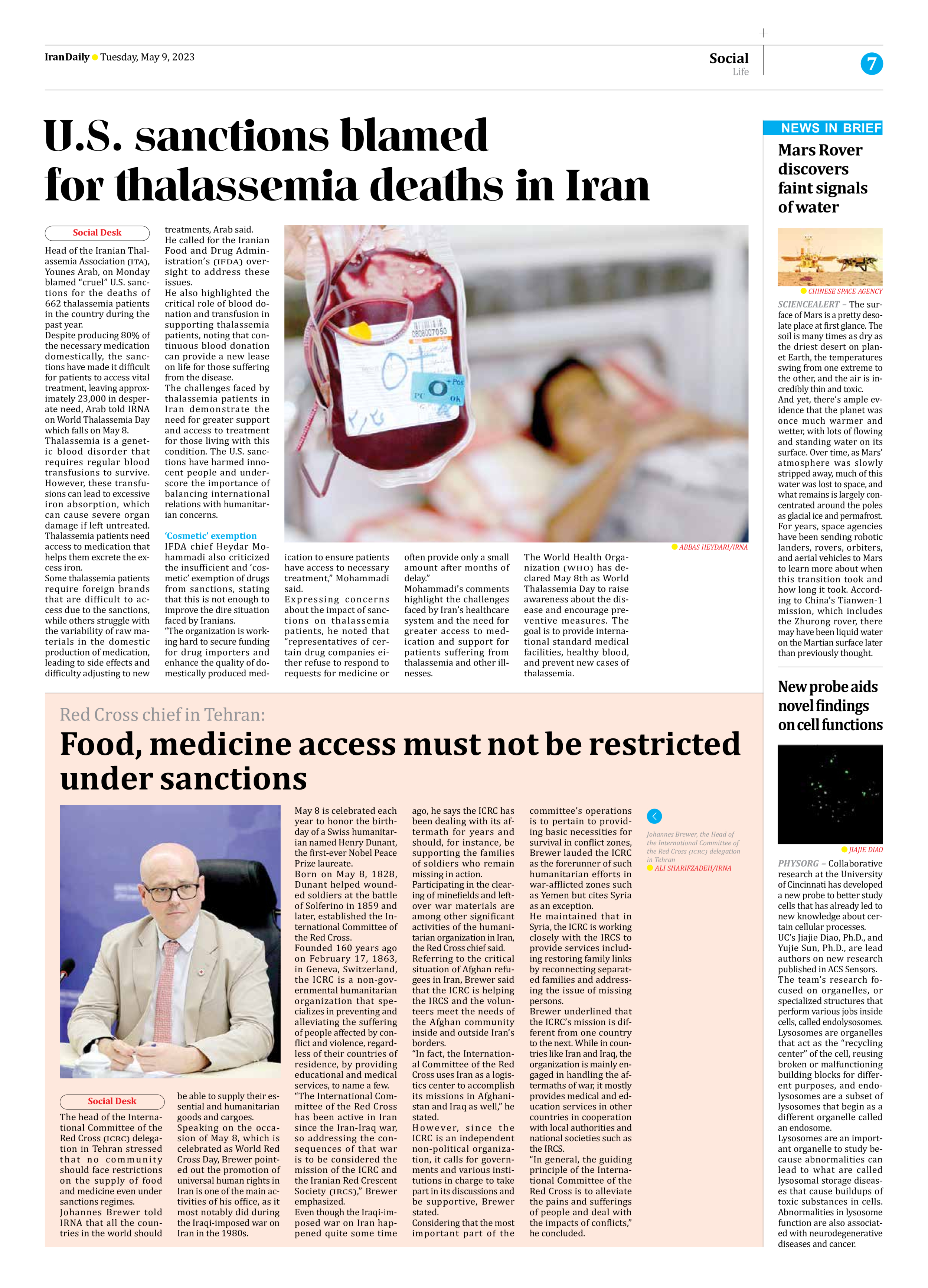
Red Cross chief in Tehran:
Food, medicine access must not be restricted under sanctions
The head of the International Committee of the Red Cross (ICRC) delegation in Tehran stressed that no community should face restrictions on the supply of food and medicine even under sanctions regimes.
Johannes Brewer told IRNA that all the countries in the world should be able to supply their essential and humanitarian goods and cargoes.
Speaking on the occasion of May 8, which is celebrated as World Red Cross Day, Brewer pointed out the promotion of universal human rights in Iran is one of the main activities of his office, as it most notably did during the Iraqi-imposed war on Iran in the 1980s.
May 8 is celebrated each year to honor the birthday of a Swiss humanitarian named Henry Dunant, the first-ever Nobel Peace Prize laureate.
Born on May 8, 1828, Dunant helped wounded soldiers at the battle of Solferino in 1859 and later, established the International Committee of the Red Cross.
Founded 160 years ago on February 17, 1863, in Geneva, Switzerland, the ICRC is a non-governmental humanitarian organization that specializes in preventing and alleviating the suffering of people affected by conflict and violence, regardless of their countries of residence, by providing educational and medical services, to name a few.
“The International Committee of the Red Cross has been active in Iran since the Iran-Iraq war, so addressing the consequences of that war is to be considered the mission of the ICRC and the Iranian Red Crescent Society (IRCS),” Brewer emphasized.
Even though the Iraqi-imposed war on Iran happened quite some time ago, he says the ICRC has been dealing with its aftermath for years and should, for instance, be supporting the families of soldiers who remain missing in action.
Participating in the clearing of minefields and leftover war materials are among other significant activities of the humanitarian organization in Iran, the Red Cross chief said.
Referring to the critical situation of Afghan refugees in Iran, Brewer said that the ICRC is helping the IRCS and the volunteers meet the needs of the Afghan community inside and outside Iran’s borders.
“In fact, the International Committee of the Red Cross uses Iran as a logistics center to accomplish its missions in Afghanistan and Iraq as well,” he stated.
However, since the ICRC is an independent non-political organization, it calls for governments and various institutions in charge to take part in its discussions and be supportive, Brewer stated.
Considering that the most important part of the committee’s operations is to pertain to providing basic necessities for survival in conflict zones, Brewer lauded the ICRC as the forerunner of such humanitarian efforts in war-afflicted zones such as Yemen but cites Syria as an exception.
He maintained that in Syria, the ICRC is working closely with the IRCS to provide services including restoring family links by reconnecting separated families and addressing the issue of missing persons.
Brewer underlined that the ICRC’s mission is different from one country to the next. While in countries like Iran and Iraq, the organization is mainly engaged in handling the aftermaths of war, it mostly provides medical and education services in other countries in cooperation with local authorities and national societies such as the IRCS.
“In general, the guiding principle of the International Committee of the Red Cross is to alleviate the pains and sufferings of people and deal with the impacts of conflicts,” he concluded.







